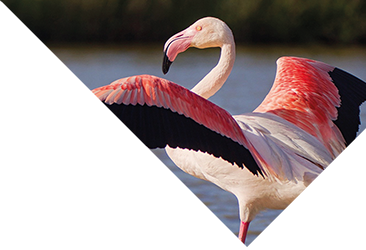| Discipline |
Crédits ECTS |
Semestre |
CM |
TD |
TP |
| Introductory field session |
3 |
1 |
– |
– |
25h |
| Ethics, Deontology, History and Philosophy of Sciences |
4 |
1 |
15h |
10h |
– |
| Scientific English |
2 |
1 |
– |
– |
36h |
| Project management |
3 |
1 |
10h |
2h |
26h |
| Behavioural Ecology and Wildlife Management |
12 |
1 |
50h |
10h |
40h |
| Literature review |
6 |
1 |
– |
– |
30h |
| Internship (4 to 6 months) |
30 |
2 |
– |
– |
– |
More details:
In the « Behavioural Ecology and Wildlife Management » teaching unit:
- Behaviour and conservation: an introduction
- Behaviour and global change
- Behavioural ecology and speciation
- Behaviour, parasites and pathogens
- Quantitative methods and tools in animal behaviour
- Relevance of behavioural syndromes and animal cognition to conservation and wildlife management
- Animal welfare and conservation
- Behaviour and ex-situ conservation
- Estimating population size, abundance and monitoring populations and individuals
- Managing animal populations (optimal harvesting, fisheries, control and limitation of species)
- Behaviour and conservation in the marine environment
- Behaviour, conservation and technological advances
- Behaviour and population ecology (Camargue field course)





